Catching up with GLOBAL Ambassador Clarissa Capuano and Actress Midori Francis
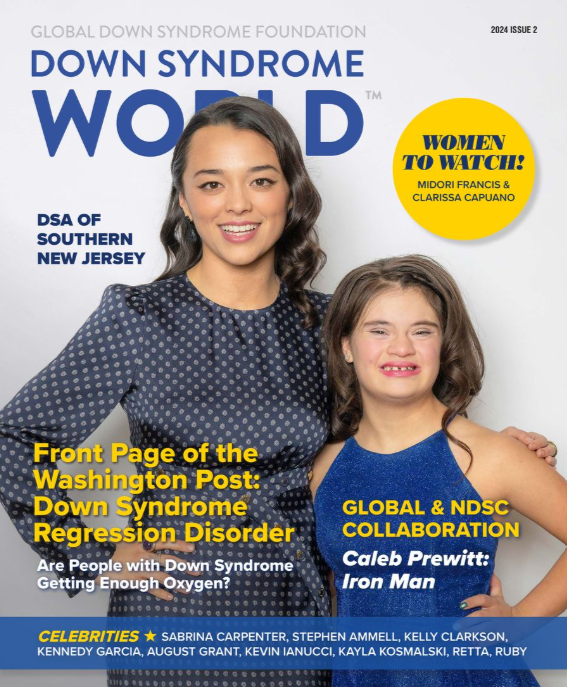
From Down Syndrome World Issue 2, 2024
 At 17 years old, Clarissa Capuano has it all: amazing friends at Denver’s Cherry Creek High School, a spot on the varsity swim team, and, of course, her Italian-Hispanic family consisting of her mom Carol, her dad Dominic, and older brothers Jessey and Alec (not to mention a slew of adoring aunts and uncles). She’s known for reveling in both sides of her ethnicity and for being feisty, determined, and so, so full of love.
At 17 years old, Clarissa Capuano has it all: amazing friends at Denver’s Cherry Creek High School, a spot on the varsity swim team, and, of course, her Italian-Hispanic family consisting of her mom Carol, her dad Dominic, and older brothers Jessey and Alec (not to mention a slew of adoring aunts and uncles). She’s known for reveling in both sides of her ethnicity and for being feisty, determined, and so, so full of love.
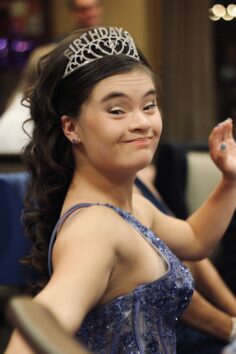
Like many children with Down syndrome, Clarissa has overcome her fair share of health challenges. She is, as a result, very familiar with the Sie Center for Down Syndrome at Children’s Hospital Colorado. Clarissa’s experience there and her relationship with the Sie Center’s Director of Therapies and Senior Physical Therapist, Pat Winders – who helped her learn how to walk – inspired Clarissa to work towards a career in healthcare.
“I want to help people like she does,” Clarissa explains.
While Clarissa wants to grow up and become a doctor, actor Midori Francis, plays a surgical intern on the hit ABC medical drama, Grey’s Anatomy.
Midori met Clarissa at the Be Beautiful Be Yourself Fashion Show, and was quick to offer Clarissa a bounty of sage advice. She started with the classic “Don’t give up!” before adding a needed dose of realism: “But be flexible… allow your passions to grow and change with you. Ask for help and put yourself out there.”
Midori may not have a medical background, but she has a lot in common with her character, Dr. Mika Yasuda.
 “We are both five foot two,” Midori jokes, “we are both scrappy. We are both quick to get worked up.”
“We are both five foot two,” Midori jokes, “we are both scrappy. We are both quick to get worked up.”
“But Mika is a doctor, and I am an actor,” she continues, “And I think what doctors have to do is much harder, and that their jobs are much more important.
ADVOCACY & INCLUSION
The comparison is born out of a reverence for healthcare workers, not a snub of her own craft. The responsibility of a platform, especially the responsibility she holds as an Asian actor, is not lost on her.
“We underestimate how much information we get from our screens, from pop-culture, and from the media we consume,” notes Midori.
She adds that, too often, when we don’t have the privilege of interacting with people different from ourselves, our brains automatically develop a narrative about those people based on what little exposure we have.
“It is in our nature as human beings to want to categorize and simplify groups of people,” Midori says, “By diversifying the types of people we see represented on our screens and by having this representation be authentic and real, we open up our minds and hearts to others.”
“It’s important for people with different abilities to see themselves represented in media to show they matter,” adds Clarissa’s Aunt Gia, reflecting on the scarcity of actors with Down syndrome represented throughout her niece’s childhood, “Their accomplishments are important, and I believe it encourages others with disabilities to know that they can accomplish their dreams.”
Midori takes that to work with her every day. It’s a complicated, nuanced, heavy mess— her honest articulation reads like a poem:
“[It feels] Like a burden. Like an honor. Like a responsibility. Like a race that is rigged, and I will never win. Like a great gift. Like a thrill. Like gratitude for all those who came before me and all those to come. Like humility for all the other areas of representation I am ignorant to.”
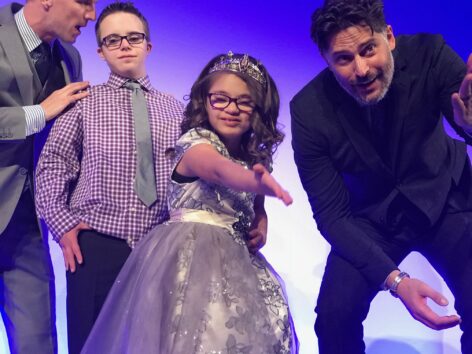
THE SHOULDERS OF GIANTS
As GLOBAL Ambassador and a Be Beautiful Be Yourself Fashion Show model, Clarissa is often perceived as a guiding star—a peek into the future for younger people with Down syndrome and their parents. She’s often one of GLOBAL’s first calls when a media appearance needs a self-advocate—you might have seen her showing off her runway walk on Colorado & Company. How exciting to think that someone with no connection to Down syndrome could turn on their TV and have any stereotype-fueled perceptions challenged by Clarissa’s confidence, professionalism and never-ending charm.
“My mom says I’m a role model,” Clarissa says proudly. The high school junior has every reason to be confident, and her family has always made sure she knew it.
“My favorite thing about my little sister is her unwavering positivity and infectious laughter,” gushes her brother, Jessey. “And how much love she has to give,” adds her other brother, Alec. 
“I absolutely love that Clarissa is always wanting to learn,” says Aunt Gia. “And she is so competitive.”
She may be petite (just like her friend Midori), but Clarissa stands on the shoulders of giants. Imagine how many people didn’t know that individuals with Down syndrome could be actors, let alone stars of Academy Award-nominated films until they saw Zack Gottsagen in The Peanut Butter Falcon. Imagine how many were moved by Frank Stephens’ declaration to Congress that his life IS worth living, because they hadn’t seen a self-advocate stand up for themselves before. All the while, young people like Clarissa are growing up alongside stars like Sofia Sanchez and Madison Tevlin, who are smashing through more and more barriers onscreen every day.
A WORLD OF JOY AND CONNECTION
Midori humbly shares that she wasn’t very familiar with Down syndrome before the Fashion Show, and thus had “a lot of unexamined and undeveloped ideas” about the condition. Gratefully, her Grey’s Anatomy castmate, Caterina Scorsone, was there to open the door. As a GLOBAL Quincy Jones Exceptional Advocacy Awardee and dedicated mother to Pippa, who has Down syndrome, there was no one better to show Midori what she’d been missing.
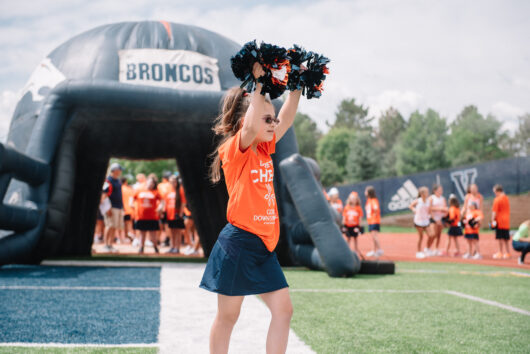
“I felt like someone opened a door to me and welcomed me into their world filled with really interesting stories and people,” says Midori, “I was invited to the event by the wonderful Caterina Scorsone (my cast mate on Grey’s Anatomy) who has a long relationship with the Foundation. She uses her platform and heart to educate people about Down syndrome and I was so honored to learn.”
Midori also appreciated the lack of self-consciousness in the air and the Be Beautiful Be Yourself catwalk’s unique ability to make fashion so joyful and celebratory. Midori rocked the runway with Alexandra Shankle, a Fashion Show veteran. She fondly remembers Alexandra’s jokester antics and contagious laugh.
“I loved speaking with her,” Midori remembers, “We mostly communicated without words, but I felt like a lot was said. I can remember that interaction better than most interactions I have had in the last year.”
Similarly, Midori’s connection with Clarissa did not disappoint.
“Clarissa was so much FUN!” Midori beams, “She was totally leading our photo shoot with the poses and I just followed along. I loved how confident she was, especially because I don’t remember feeling that confident when I was her age.”
Clarissa has never met a photo op she didn’t love, but she recalls having an especially fun time hamming it up with her new friend Midori.
AUTHENTICITY EMPOWERS OTHERS
 Our teen years can be a precarious time for anyone’s self- esteem, and it’s no secret that kids perceived as “different” are often subject to unfair treatment from their peers. Growing up Asian-American in a predominantly Caucasian New Jersey town in the 90’s and early 2000’s, Midori was routinely bullied for her ethnicity.
Our teen years can be a precarious time for anyone’s self- esteem, and it’s no secret that kids perceived as “different” are often subject to unfair treatment from their peers. Growing up Asian-American in a predominantly Caucasian New Jersey town in the 90’s and early 2000’s, Midori was routinely bullied for her ethnicity.
“It is a terrible feeling to be put down or bullied… to be laughed at or mocked for being who you are,” Midori shares. “But you know what’s a worse feeling, worse than any of that? The feeling like you’re never allowed to be yourself. To that end, the best compliment anyone can ever give me is that they feel like they can be themselves around me. I do not take that lightly as I know what a gift it is to feel like you can be yourself.”
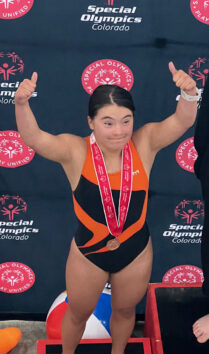
Clarissa couldn’t agree more about the importance of embracing people who are “different.” Her innate drive to stand up for herself and others with disabilities is irrepressible, and the world is better off for it.
Clarissa’s dad, Dominic, has always been proud of his daughter’s instinct to look out for others.
“She is a very caring soul,” he shares, recalling Clarissa’s instinct to always show up for her friend, Ryan, in her school’s Integrated Learning Center. “She cares for him and supports him in class and she’s overall just a great friend.”
With the support of her family, mentors, and friends, Clarissa is breaking barriers and inspiring others to embrace their unique paths. Whether on the runway or pursuing a career in healthcare, Clarissa shows that true confidence comes from being unapologetically yourself. Through her advocacy and self-expression, Clarissa is not only changing the narrative for individuals with Down syndrome but encouraging us all to celebrate our differences and build a more compassionate world.

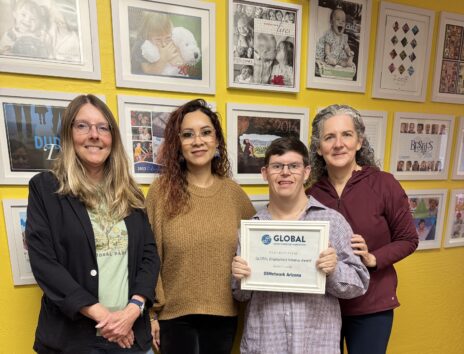
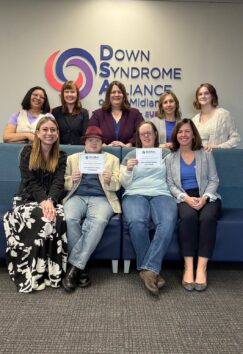

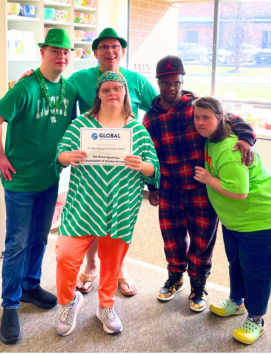
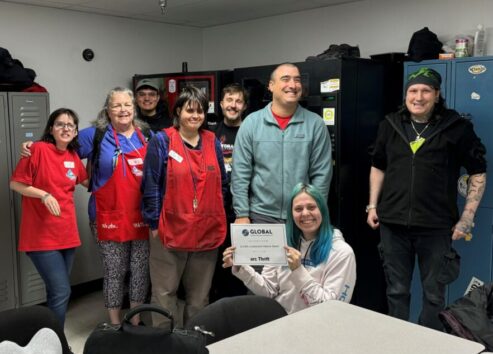
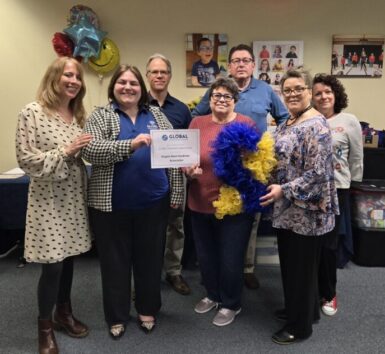
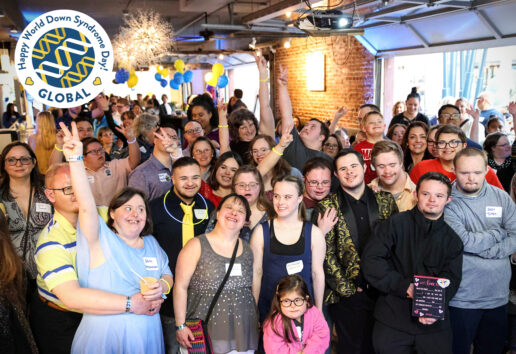


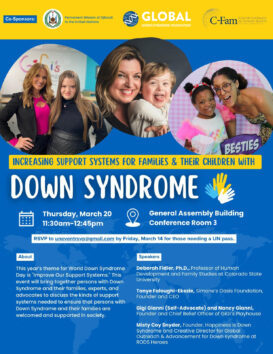


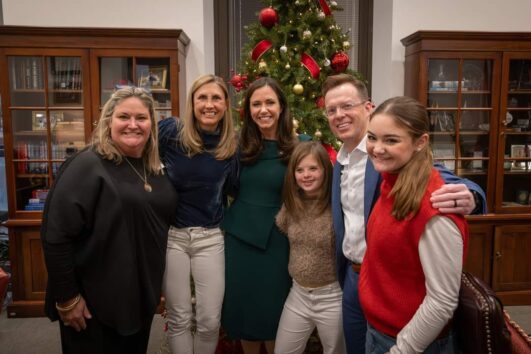
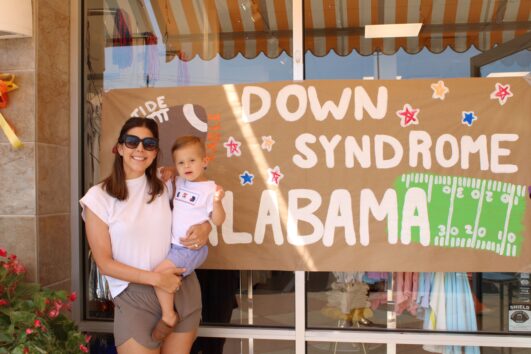 DAVID: Last year, Down Syndrome Alabama received DSAIA’s “Affiliate of the Year” Award. Tell us a bit about that recognition and what it means to you.
DAVID: Last year, Down Syndrome Alabama received DSAIA’s “Affiliate of the Year” Award. Tell us a bit about that recognition and what it means to you. DAVID: Cool, indeed. As is the fact that you have a new Down syndrome clinic forming in Birmingham! How is Down Syndrome Alabama supporting that effort?
DAVID: Cool, indeed. As is the fact that you have a new Down syndrome clinic forming in Birmingham! How is Down Syndrome Alabama supporting that effort?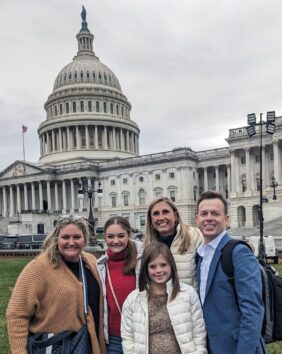 DAVID: Tell us about your experience with GLOBAL’s DeOndra Dixon fly-in.
DAVID: Tell us about your experience with GLOBAL’s DeOndra Dixon fly-in. DAVID: Is there anything else you’d like to share?
DAVID: Is there anything else you’d like to share?
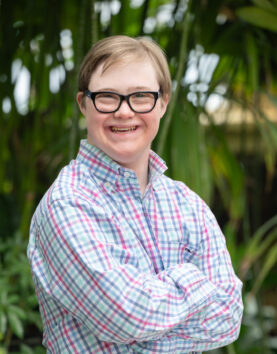

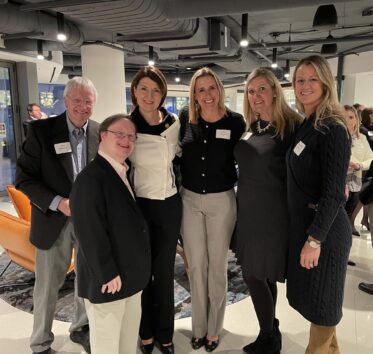



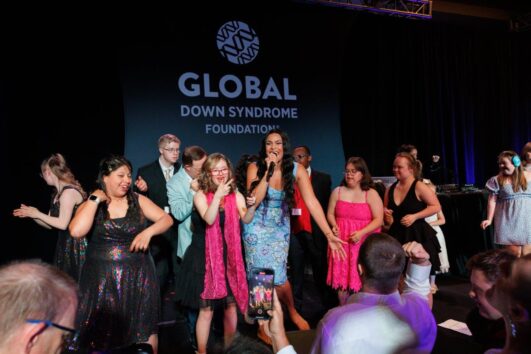

 At 17 years old, Clarissa Capuano has it all: amazing friends at Denver’s Cherry Creek High School, a spot on the varsity swim team, and, of course, her Italian-Hispanic family consisting of her mom Carol, her dad Dominic, and older brothers Jessey and Alec (not to mention a slew of adoring aunts and uncles). She’s known for reveling in both sides of her ethnicity and for being feisty, determined, and so, so full of love.
At 17 years old, Clarissa Capuano has it all: amazing friends at Denver’s Cherry Creek High School, a spot on the varsity swim team, and, of course, her Italian-Hispanic family consisting of her mom Carol, her dad Dominic, and older brothers Jessey and Alec (not to mention a slew of adoring aunts and uncles). She’s known for reveling in both sides of her ethnicity and for being feisty, determined, and so, so full of love.
 “We are both five foot two,” Midori jokes, “we are both scrappy. We are both quick to get worked up.”
“We are both five foot two,” Midori jokes, “we are both scrappy. We are both quick to get worked up.”


 Our teen years can be a precarious time for anyone’s self- esteem, and it’s no secret that kids perceived as “different” are often subject to unfair treatment from their peers. Growing up Asian-American in a predominantly Caucasian New Jersey town in the 90’s and early 2000’s, Midori was routinely bullied for her ethnicity.
Our teen years can be a precarious time for anyone’s self- esteem, and it’s no secret that kids perceived as “different” are often subject to unfair treatment from their peers. Growing up Asian-American in a predominantly Caucasian New Jersey town in the 90’s and early 2000’s, Midori was routinely bullied for her ethnicity.
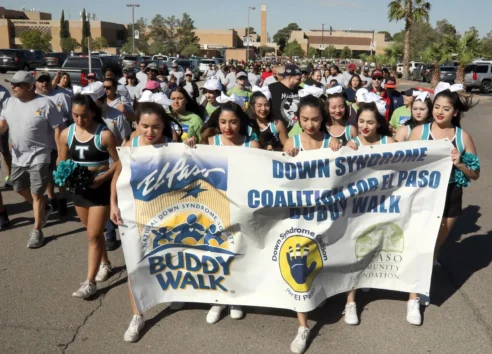


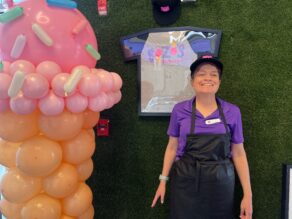
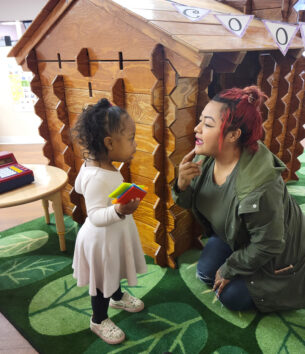
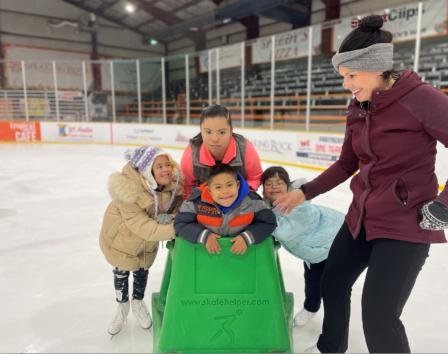
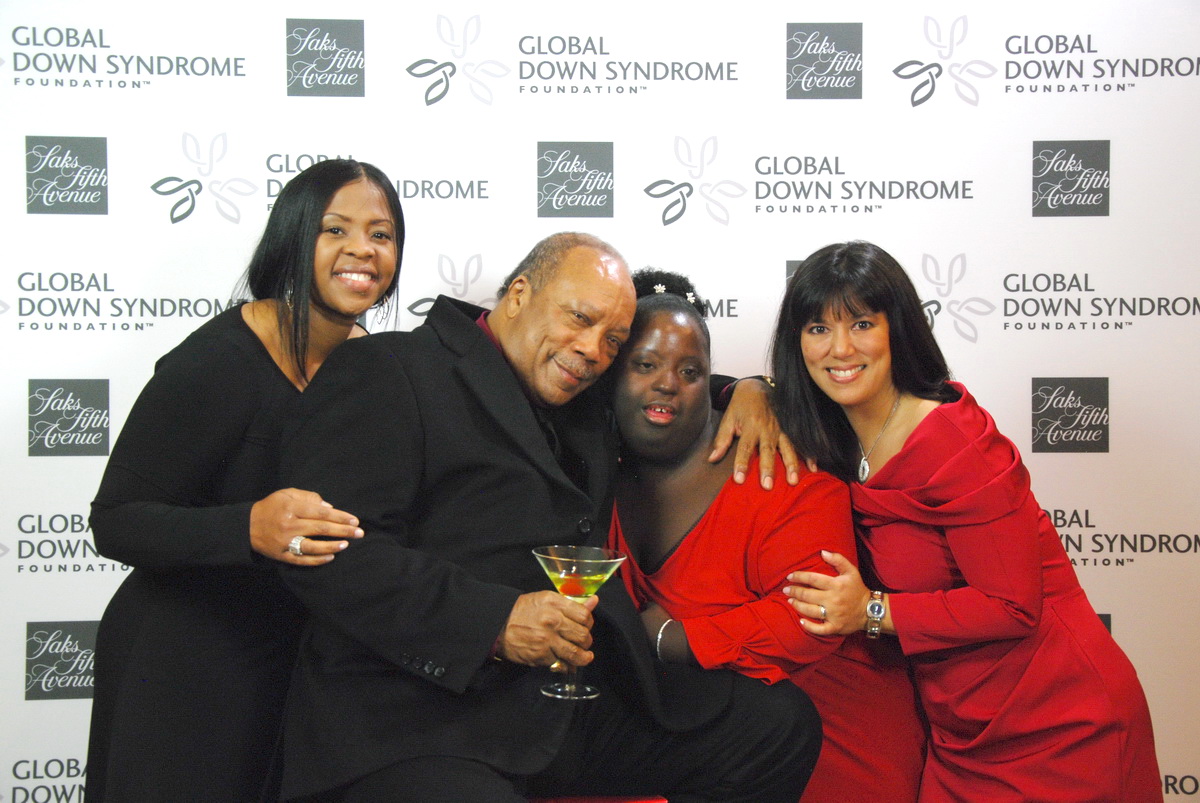
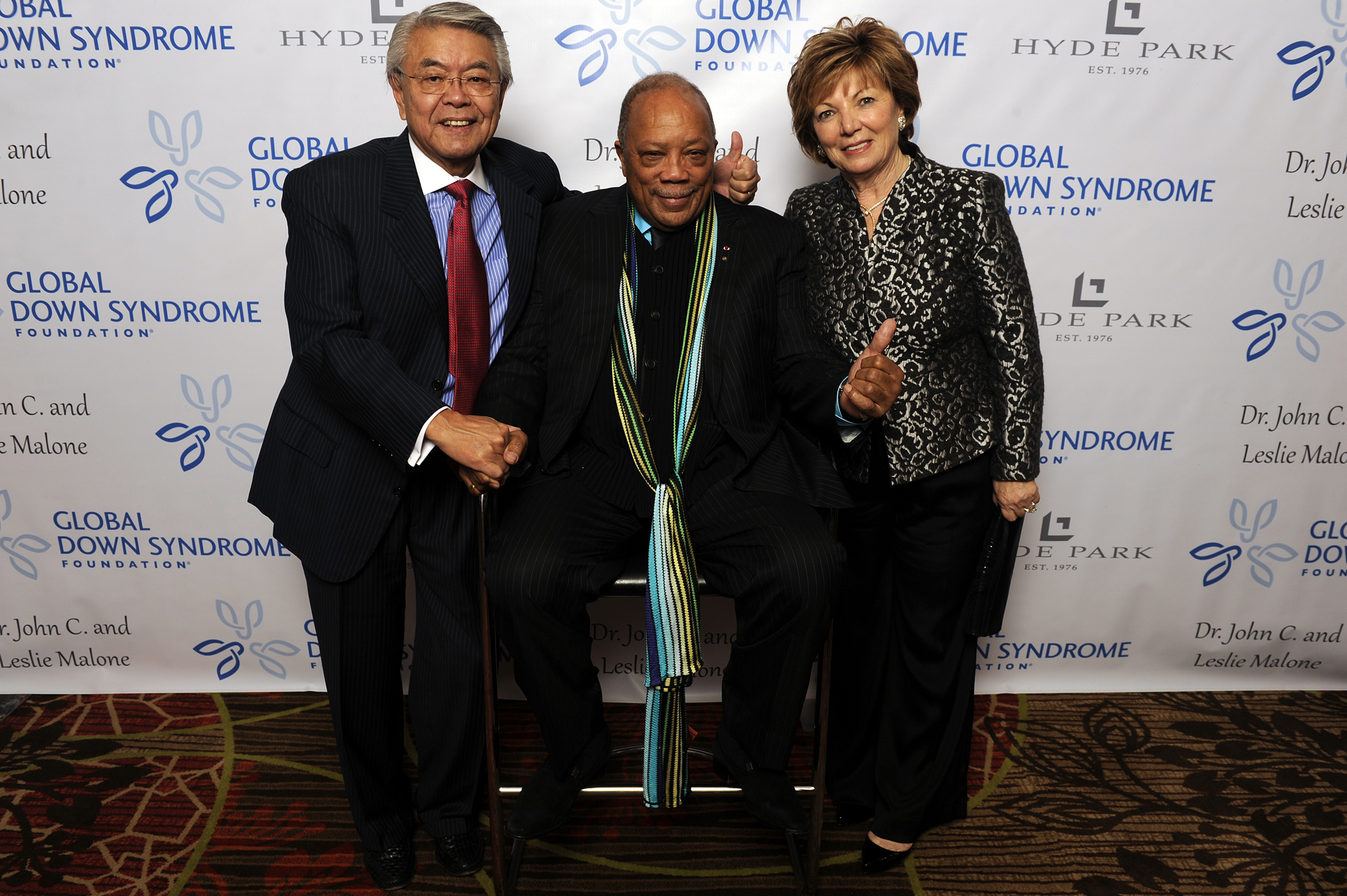
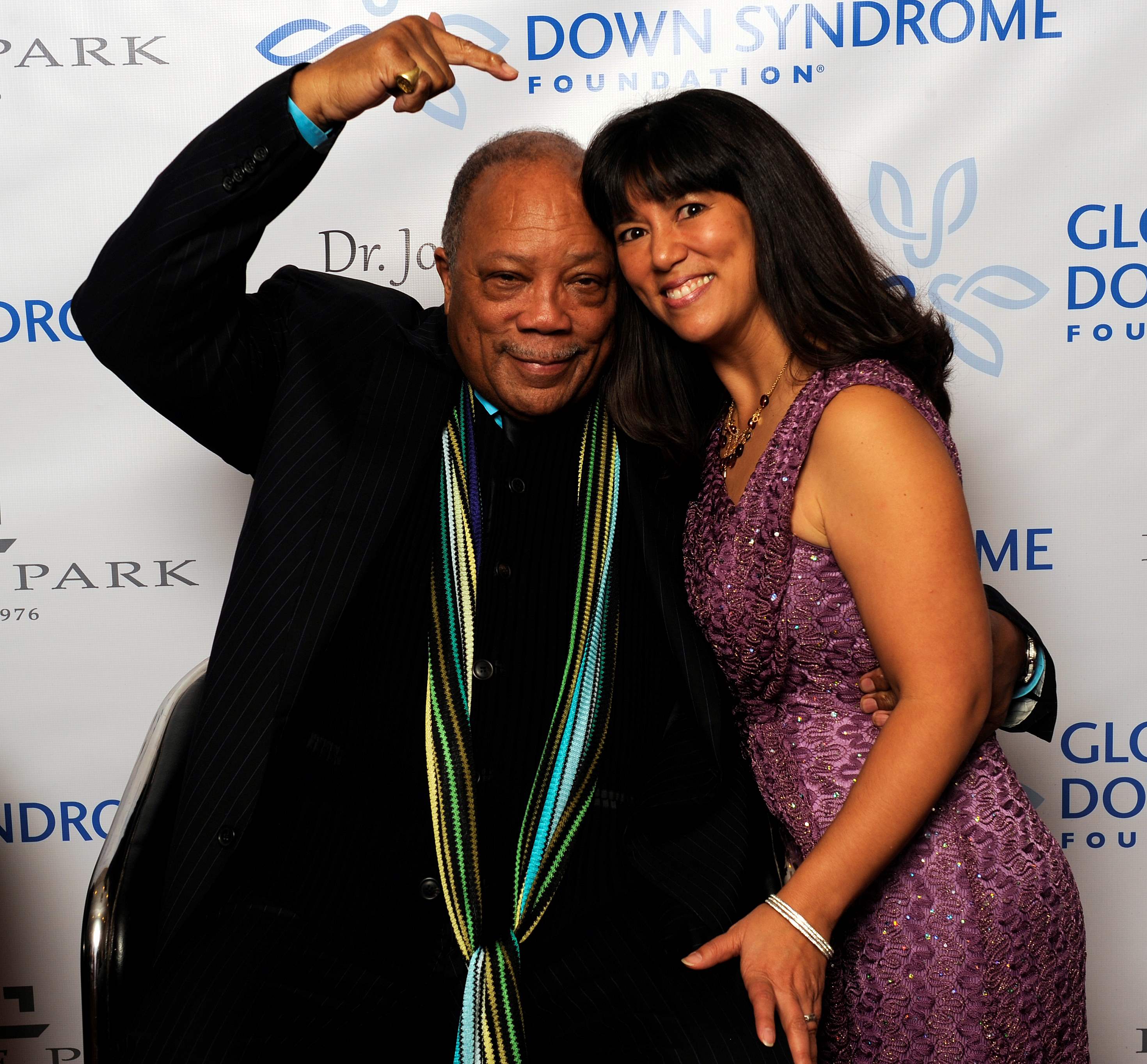
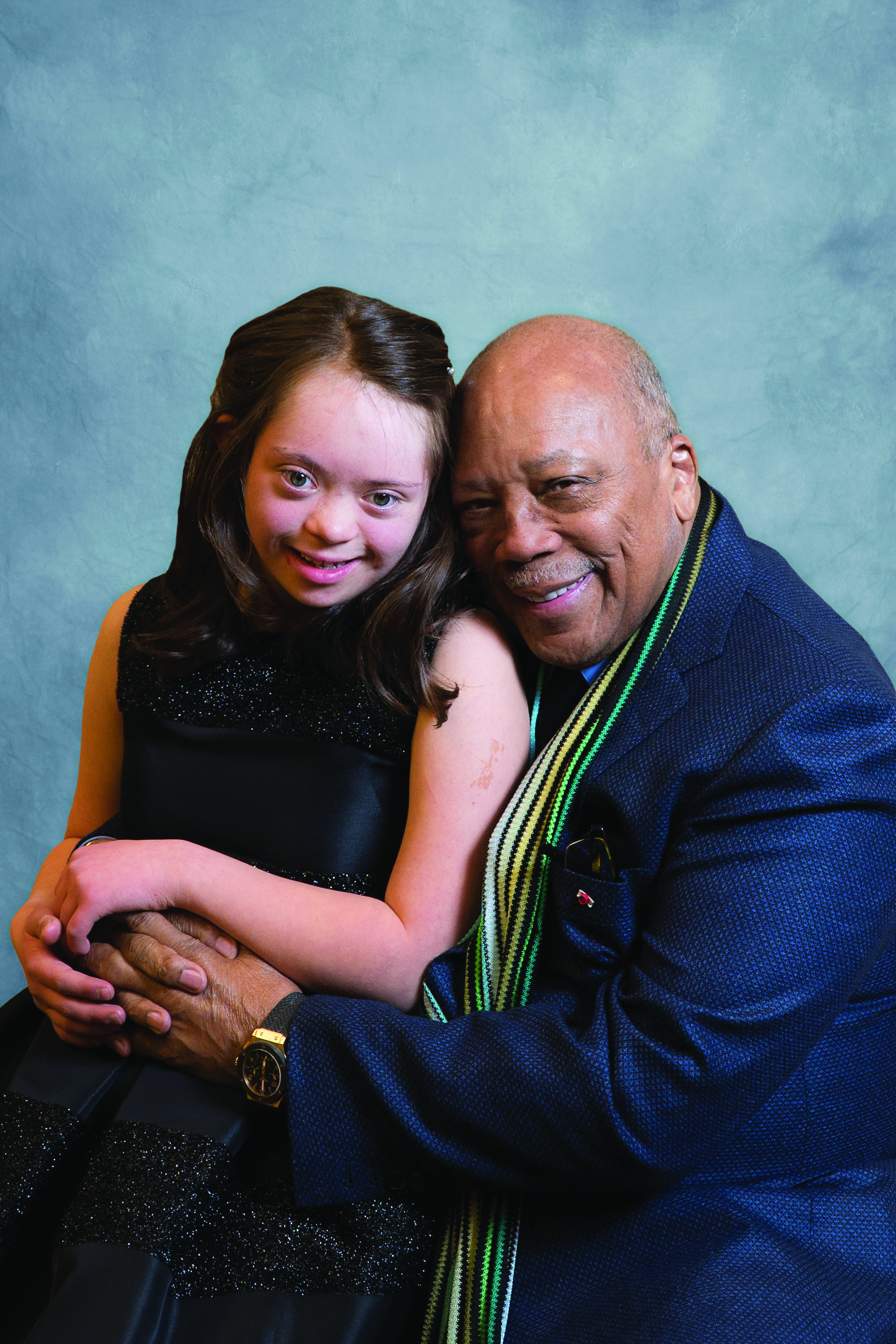
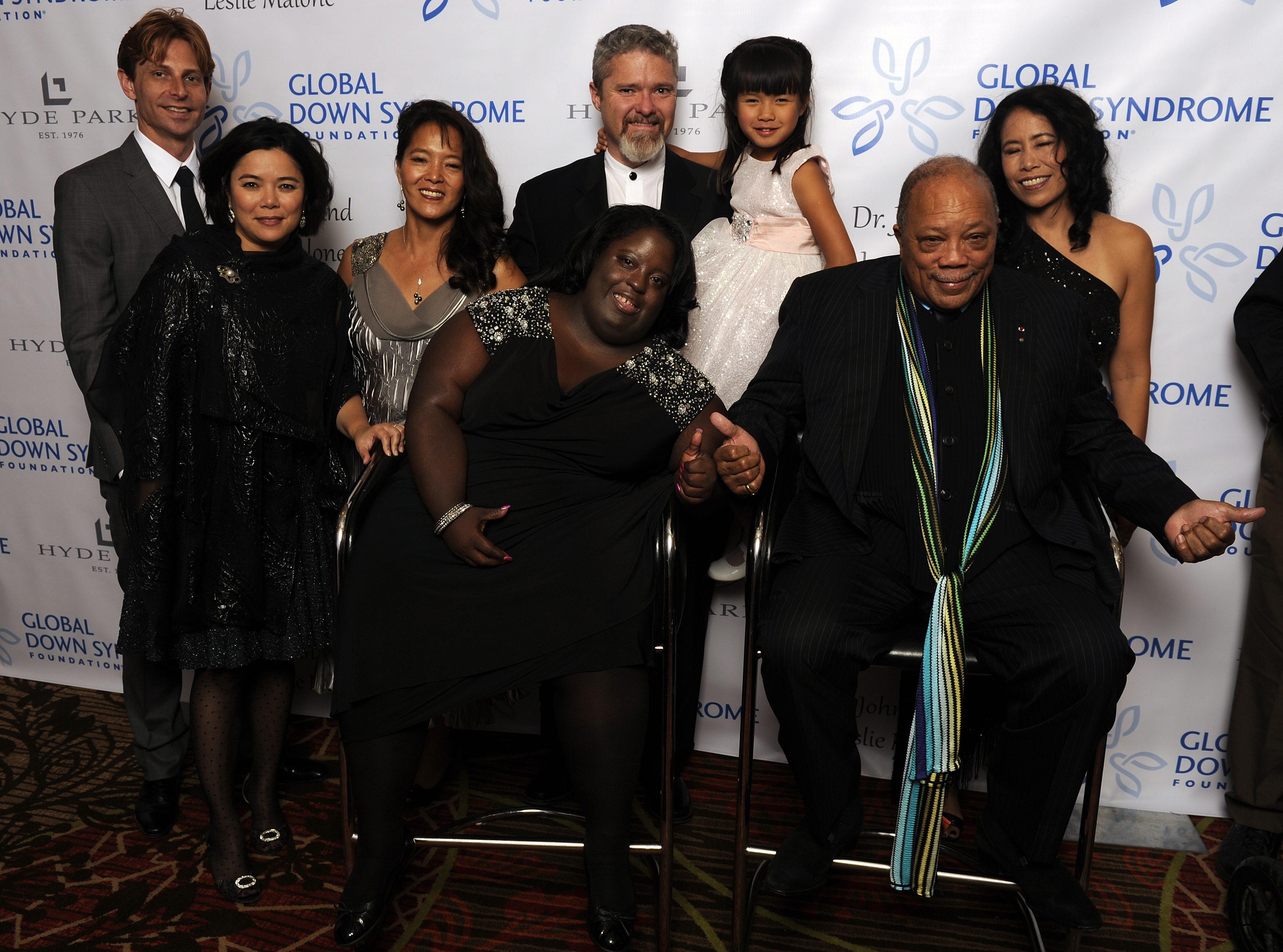
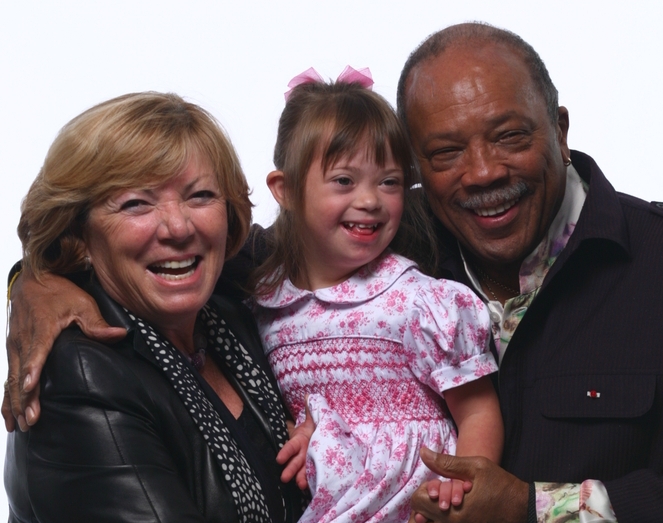
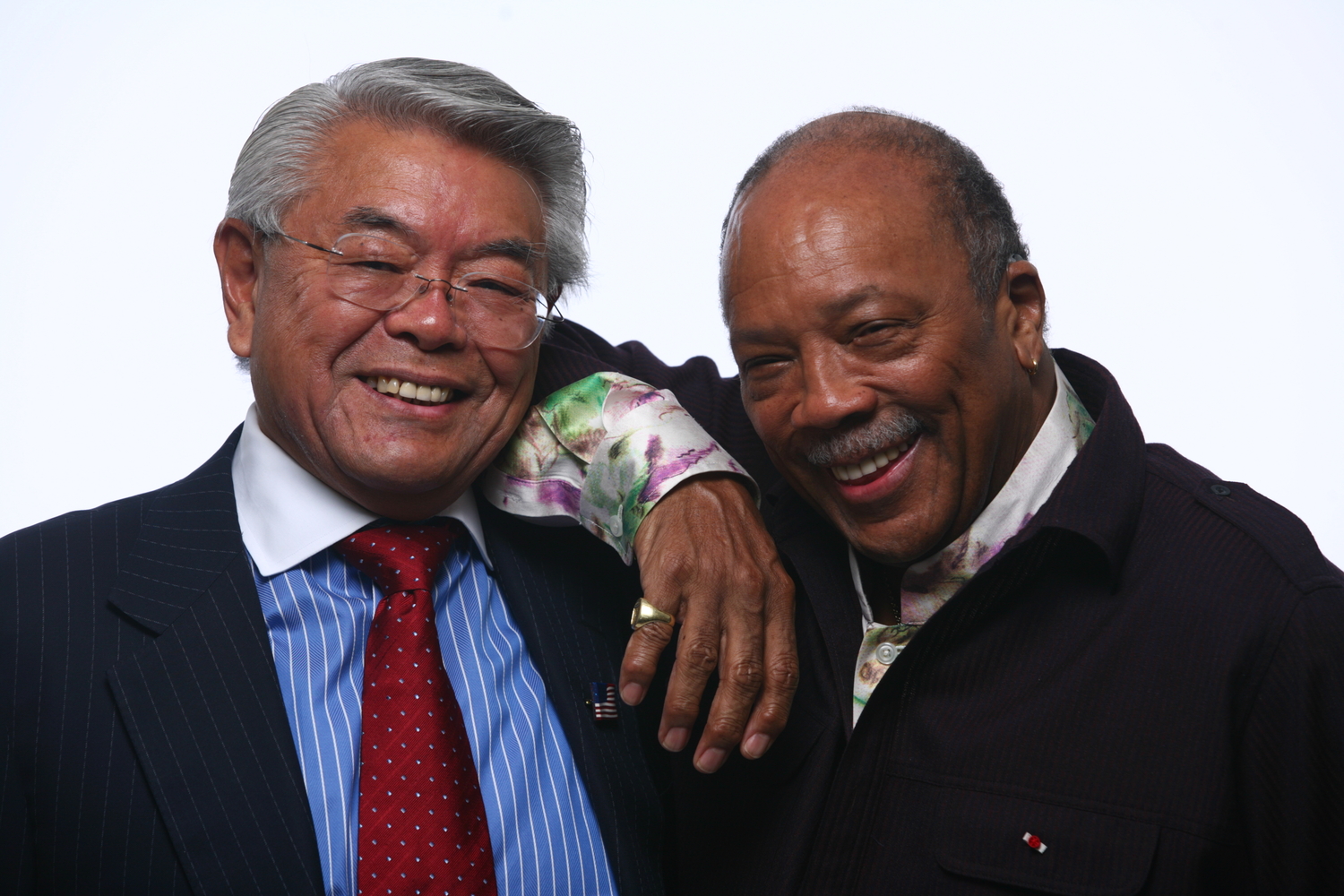

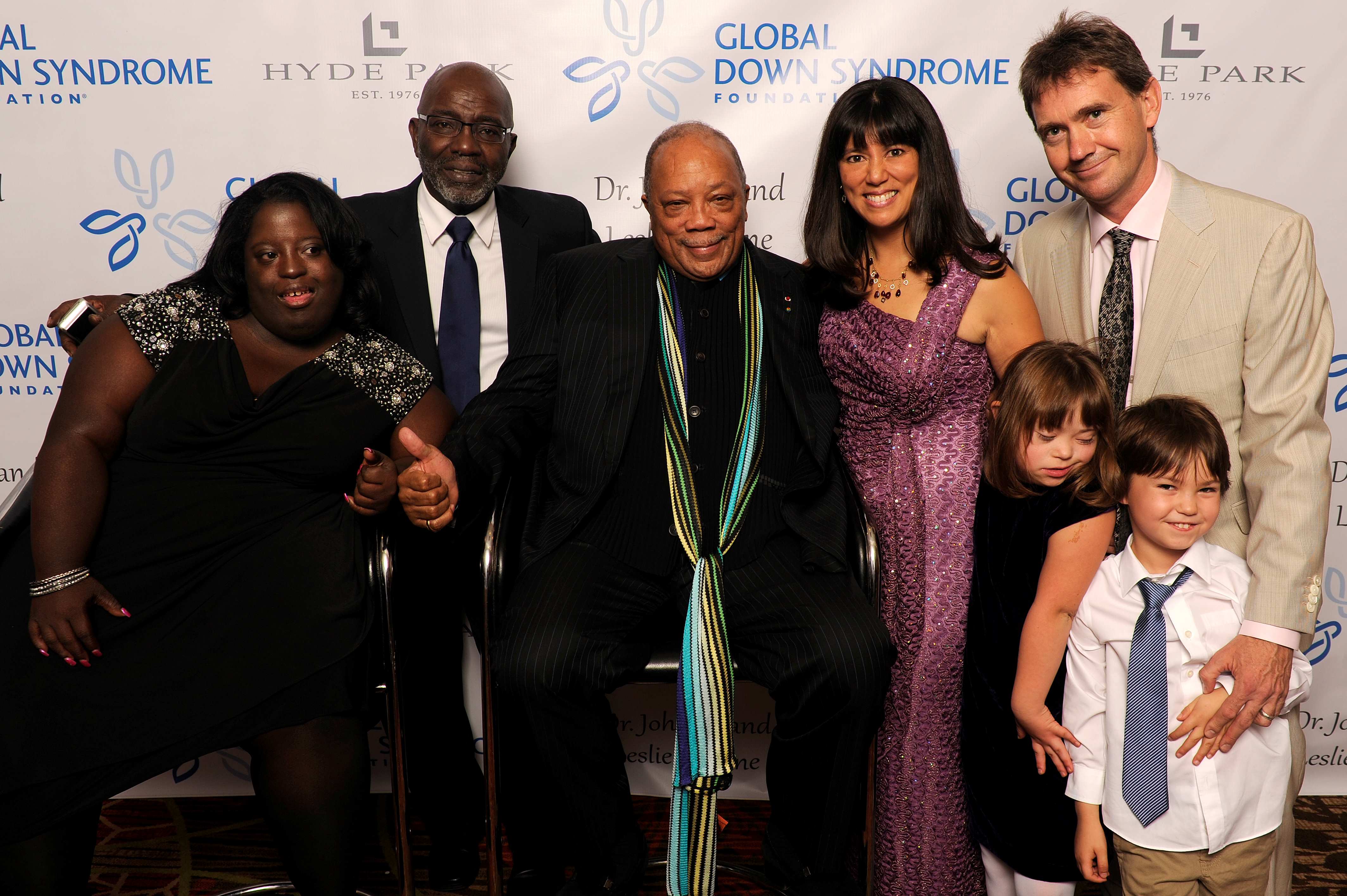
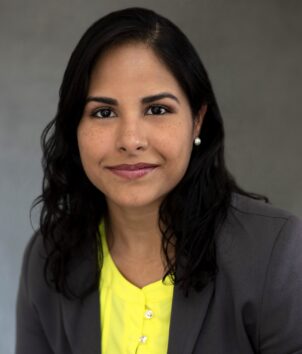







 While Carla was no intellectual slack (she received her BA from Colorado College and her JD from DU Law School), she had a definite love for enjoying life – playing sports, watching sports (especially the Broncos), international travel, colorful clothes, and cocktails were some enjoyments at the top the list! She instilled the love for life and actively participating in all her children, and the fact that Alex was a Girl Scout Brownie, and continues to enjoy Right Step Horseback riding, Dare to Cheer, Dance Athletics Denver, National Sports Center for the Disabled (NSDC) and Adam’s camps, basketball, and baseball is a testament to how Carla ensured her family’s lives are filled with activity and happiness.
While Carla was no intellectual slack (she received her BA from Colorado College and her JD from DU Law School), she had a definite love for enjoying life – playing sports, watching sports (especially the Broncos), international travel, colorful clothes, and cocktails were some enjoyments at the top the list! She instilled the love for life and actively participating in all her children, and the fact that Alex was a Girl Scout Brownie, and continues to enjoy Right Step Horseback riding, Dare to Cheer, Dance Athletics Denver, National Sports Center for the Disabled (NSDC) and Adam’s camps, basketball, and baseball is a testament to how Carla ensured her family’s lives are filled with activity and happiness.



 Experience our inspirational and groundbreaking videos and photos. Our children and self-advocates are beautiful AND brilliant!
Experience our inspirational and groundbreaking videos and photos. Our children and self-advocates are beautiful AND brilliant! Make sure your local Representatives are on the Congressional Down Syndrome Task Force.
Make sure your local Representatives are on the Congressional Down Syndrome Task Force.